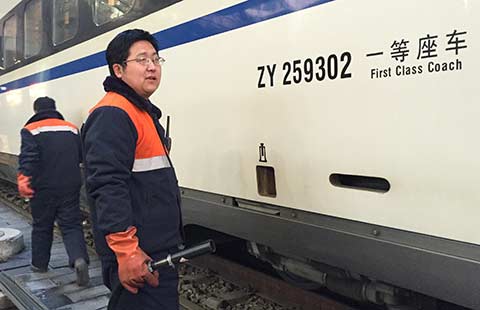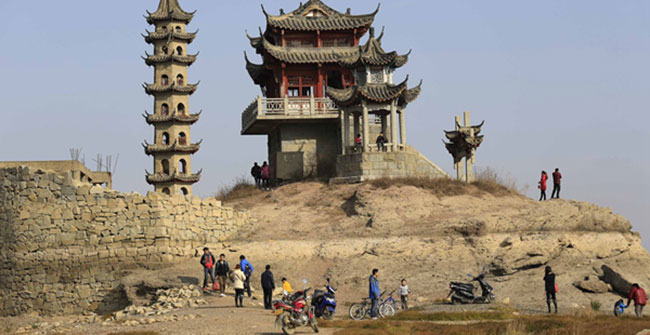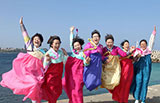Consultation and partnership
By Peng Yining (China Daily) Updated: 2012-09-04 09:10As the 18th CPC National Congress draws near, Peng Yining explains how the CPC and other political parties interact ahead of the country's most important political event.
Following a high-pitched beep, a text message popped up on the screen of Chen Gong's cellphone. It was a briefing message about safety management of the manhole covers that litter Beijing's streets, to ensure that residents avoid injury caused by broken or loose-fitting covers.
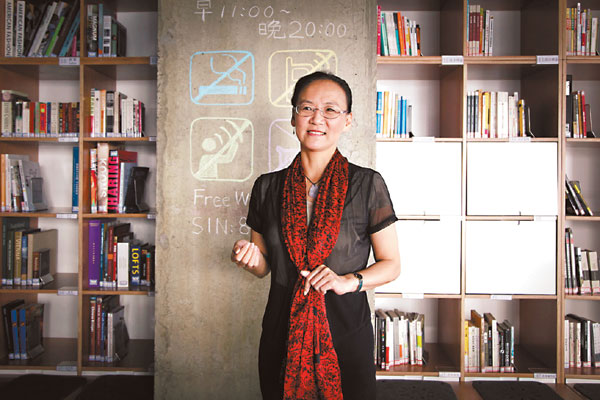 |
|
Chen Gong, a member of the Beijing Dongcheng district committee of the China National Democratic Construction Association, receives roughly 200 briefing messages a year - ranging from drain-cover management to foreign policy initiatives - from members of the Dongcheng district branch, via text messages, e-mail and letters. About 30 to 50 percent of these messages will be noted or adopted by relevant governmental departments. Kuang Linhua / China Daily |
Chen, a member of the Beijing Dongcheng district committee of the China National Democratic Construction Association - one of eight non-communist parties active in the country - said the message would be passed on to a higher level of the CNDCA and then to the United Front Work Department of Communist Party of China Central Committee. Finally, it would be brought to the attention of a related governmental department, probably the Beijing Municipal Commission of City Administration and Environment.
Chen said she receives roughly 200 briefing messages a year - ranging in scope from simple drain-cover management to complex foreign policy initiatives - from 1,500 members of the Dongcheng district branch, via text messages, e-mail and letters.
She said 30 to 50 percent of these messages will be noted or adopted by relevant governmental departments. In addition, the district's CNDCA committee presents five proposals annually to the Chinese People's Political Consultative Conference at city level.
"I am only talking about messages from one party branch in one district," said Chen. "Imagine how many pieces of advice are proposed and adopted all over China every year. These are informed opinions and should never be underestimated."
Last year a proposal from Chen, about the development of Beijing's culture industry, was adopted and overseen directly by the mayor.
Non-communist parties and politicians without party affiliation play a large role in political consultation and the democratic supervision of State affairs.
|
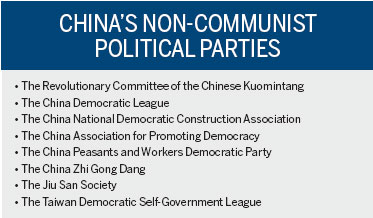 |
Canvassing views
Political consultation is an indispensable procedure in every significant decision made by the Communist Party of China. The government canvasses the views of non-communist parties and independent politicians, including their opinions in the decision-making process, to ensure the correct decisions are made and to promote efficiency.
Through the use of proposals and symposiums, non-communist politicians participate in almost every branch of national affairs, including the economy, education, social security and foreign policy. The various levels of the CPC and the government are required to respond to the submissions of the panel.
"In the past five years, President Hu has personally hosted five or six sessions with non-communist representatives annually, to discuss major national issues," said Yan Junqi, who has participated in the sessions with Hu Jintao since 2007. Yan is president of the China Association for Promoting Democracy, a political party mainly peopled by intellectuals in the fields of education, culture and publishing.
- Special troops to help keep China-Pakistan corridor safe
- New policies to aid Belt and Road business ventures
- Zika curbs to include mosquito mass extermination
- Xi visits old revolutionary base areas ahead of Spring Festival
- Nation in bid to ward off the Zika virus
- Li drops in for a chat at historic mosque
- Prison time reduced after 11 show they regret crimes
- PLA vows support, contributions to military reform
- Hainan looks to boost visitor numbers
- Excessive emissions a big problem in 59 cities


